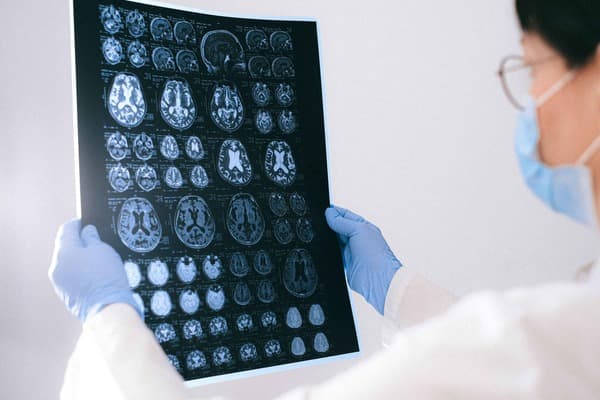June 29, 2023
What is Tinnitus?
Article Navigation: Quick Access to Sections
Tinnitus, commonly described as a phantom noise, is a widespread auditory condition that significantly influences quality of life for many. Although tinnitus has no known cure, a deeper understanding of its symptoms, underlying causes, diagnostic processes, and management strategies can dramatically improve coping mechanisms and overall well-being. In this guide, we delve into every facet of tinnitus, providing empowering information to help those affected live fulfilling, comfortable lives.
What is Tinnitus?
Tinnitus is the perception of sound—such as ringing, buzzing, clicking, hissing, or roaring—in the absence of any external auditory stimulus. It affects millions worldwide, ranging from mildly bothersome to significantly disruptive. Though often linked with hearing loss, tinnitus can occur independently and affects people of all ages, from children to older adults.

Identifying Tinnitus Symptoms
Tinnitus symptoms can vary greatly between individuals. Common experiences include:
- Ringing: Persistent or intermittent ringing.
- Buzzing or Humming: Low-frequency buzzing or humming sounds.
- Clicking or Popping: Sounds synchronized with jaw movements or swallowing.
- Hissing or Whistling: High-pitched noises similar to escaping air.
Symptoms often intensify in quiet environments or during stress. Some individuals also experience hyperacusis, an increased sensitivity to external sounds.
What Causes Tinnitus?
Tinnitus arises from various factors, including:
- Noise-Induced Hearing Damage: Prolonged exposure to loud noises.
- Age-Related Hearing Loss: Gradual hearing deterioration over time.
- Earwax Blockage: Excessive buildup causing ear pressure.
- Medication Side Effects: Ototoxic drugs such as certain antibiotics and pain relievers.
- Head or Neck Trauma: Injuries affecting auditory pathways.
- Underlying Medical Conditions: Ménière's disease, hypertension, thyroid disorders, or TMJ disorders.
Identifying the cause early enhances management effectiveness.
Everyday Triggers That Can Worsen Tinnitus
Awareness of triggers can help manage tinnitus effectively:
| Trigger | Description | Recommended Action |
|---|---|---|
| Stress & Anxiety | Emotional stress often intensifies tinnitus. | Practice relaxation techniques like meditation or deep breathing. |
| Poor Sleep Habits | Insufficient sleep can increase tinnitus severity. | Establish a regular sleep schedule and bedtime routine. |
| Dietary Choices | Caffeine, salt, sugar, and alcohol can exacerbate tinnitus. | Limit intake of these substances and maintain a balanced diet. |
| Quiet Environments | Silence can heighten tinnitus perception. | Use background noise or soothing sounds to mask tinnitus. |
| Loud Noises | Sudden or prolonged exposure to loud sounds can trigger or worsen tinnitus. | Wear ear protection and avoid environments with excessively loud noise. |
| Certain Medications | Some medications, like certain antibiotics or pain relievers, can aggravate tinnitus. | Consult your healthcare provider about medication alternatives or adjustments. |
Adjusting these factors can provide noticeable tinnitus relief.
Common Myths About Tinnitus
Misconceptions about tinnitus can increase anxiety. Here are common myths debunked:
- Myth: Tinnitus is always permanent.
- Reality: While chronic tinnitus can persist, many cases resolve or significantly improve with treatment.
- Myth: Tinnitus means inevitable hearing loss.
- Reality: Tinnitus can occur without hearing loss.
- Myth: Only older adults experience tinnitus.
- Reality: Tinnitus affects people of all ages, including children.
- Myth: Tinnitus will inevitably get worse over time.
- Reality: Tinnitus severity varies; for many people, symptoms remain stable or improve with proper management.
- Myth: There’s nothing you can do to ease tinnitus symptoms.
- Reality: Various treatments and management techniques can significantly alleviate symptoms and improve quality of life.
Understanding these realities helps reduce unnecessary worry. For more insights into common tinnitus misconceptions, check out our detailed guide: Tinnitus Myths vs. Reality.
Diagnosing Tinnitus: What to Expect
Receiving an accurate diagnosis for tinnitus involves several key steps and evaluations. A comprehensive assessment not only helps pinpoint possible underlying causes but also guides effective treatment plans tailored specifically to each individual's experience.
A standard tinnitus evaluation typically includes:
-
Detailed Medical History:
Your healthcare provider will ask about your symptoms, duration, severity, and any associated factors, such as previous noise exposure, medication usage, recent illnesses, head or neck injuries, or lifestyle factors that may influence tinnitus. -
Physical Examination:
An examination focusing on your ears, head, neck, and jaw can identify conditions such as earwax buildup, infections, or abnormalities in the ear canal and eardrum that may contribute to tinnitus. -
Audiological Assessments:
Audiologists conduct hearing tests like audiometry to measure hearing sensitivity across various frequencies, and tympanometry to assess the middle ear’s function. These tests determine if hearing loss accompanies tinnitus, which can significantly influence treatment strategies. -
Imaging Tests:
Although not always required, imaging tests like MRI (Magnetic Resonance Imaging) or CT (Computed Tomography) scans are sometimes recommended to rule out structural abnormalities, tumors, or other issues within the auditory pathway or brain structures that might cause or exacerbate tinnitus.
Professional evaluation is essential, as it provides clarity about your condition, alleviates anxiety by addressing uncertainties, and serves as a foundation for effective symptom management and improved quality of life.
When Should You See a Doctor for Tinnitus?
Seek medical advice if tinnitus:
- Appears suddenly or after an injury.
- Is accompanied by dizziness, hearing loss, or pain.
- Significantly disrupts daily life or emotional well-being.
Early consultation helps prevent complications and improve outcomes.
Effective Treatments for Tinnitus
Multiple strategies help reduce tinnitus perception:
1. Sound Therapy
- White noise devices
- Hearing aids for associated hearing loss
- Notched music therapies
2. Psychological Approaches
- Cognitive Behavioral Therapy (CBT) for anxiety management.
- Relaxation practices such as meditation and yoga.
3. Lifestyle and Natural Remedies
- Regular exercise to improve circulation.
- Dietary modifications to reduce symptom triggers.
- Supplements like magnesium or zinc (consult healthcare provider).
4. Medication
- No direct tinnitus medication exists; however, anxiety or sleep aids may improve quality of life.
Read more in our detailed guide: Managing Tinnitus.
Advances in Tinnitus Research
Exciting advancements in tinnitus research continue to emerge, offering hope for future relief:
-
Neuromodulation: This innovative approach involves stimulating auditory neural pathways to interrupt or reprogram abnormal brain signals associated with tinnitus. Treatments like transcranial magnetic stimulation (TMS) and vagus nerve stimulation (VNS) have shown promising results in clinical trials.
-
Stem Cell Research: Researchers are actively investigating the potential of stem cells to regenerate damaged inner-ear hair cells, which play a crucial role in hearing and tinnitus. Although still experimental, early results indicate the possibility of restoring auditory function and significantly reducing tinnitus symptoms.
-
Personalized Treatments: Cutting-edge technology and artificial intelligence now enable tailored sound therapy based on individual tinnitus profiles. This personalized approach enhances treatment efficacy by addressing each patient's unique auditory experiences.
-
Pharmacological Developments: Scientists are exploring medications specifically targeting the neurological pathways involved in tinnitus perception. Clinical trials for various compounds, aiming to reduce or completely eliminate tinnitus, are currently underway.
-
Advanced Imaging Techniques: Innovations in brain imaging help researchers pinpoint specific neural activities linked to tinnitus, improving understanding and potentially leading to more targeted treatments.
Leading institutions worldwide, such as the National Institute on Deafness and Other Communication Disorders (NIDCD), continue to spearhead research, paving the way for groundbreaking therapies and ultimately aiming for a cure.

Tinnitus and Anxiety: An Important Connection
Anxiety can significantly exacerbate tinnitus symptoms, creating a cycle in which tinnitus leads to increased anxiety, further intensifying the tinnitus perception. Effectively managing anxiety can break this cycle and considerably reduce the severity of tinnitus symptoms. Helpful strategies include:
- Mindfulness-Based Stress Reduction (MBSR): Practicing mindfulness helps individuals focus on the present, reducing worry and tension related to tinnitus.
- Counseling and Professional Therapy: Cognitive Behavioral Therapy (CBT) and counseling provide tools for managing emotional responses and improving coping mechanisms.
- Engaging in Relaxing Activities and Hobbies: Regularly participating in enjoyable and calming activities can help distract from tinnitus symptoms and lower overall stress levels.
For more detailed strategies on managing anxiety associated with tinnitus, read our guide: Anxiety: Staying Mentally Strong.
Managing anxiety effectively not only alleviates emotional distress but also substantially diminishes tinnitus intensity, improving overall quality of life.
Coping Strategies and Finding Support
Effective coping mechanisms and support resources:
- Join tinnitus support groups for emotional comfort and advice.
- Regular educational updates to stay informed.
- Seek professional counseling for tailored emotional support.
Conclusion: Living Comfortably with Tinnitus
Though tinnitus can be challenging, informed and proactive management makes a significant difference. Understanding causes, debunking myths, recognizing symptoms, and exploring treatment options allow tinnitus to become manageable, improving life quality dramatically.
Stay proactive, explore available resources, and remain hopeful as scientific advancements continue to emerge. With knowledge and support, living comfortably with tinnitus is achievable.